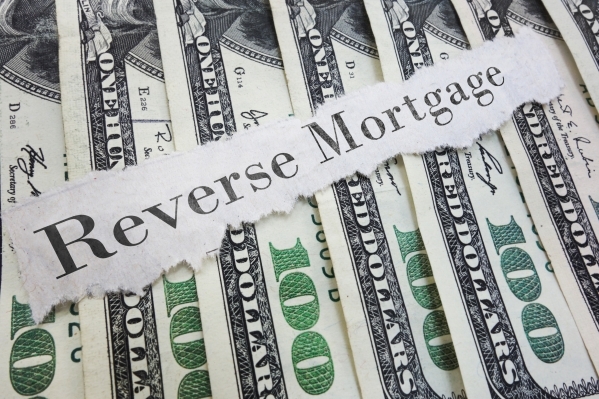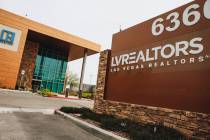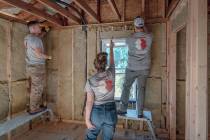Basics of reverse mortgages


Reverse mortgages have become the cash-strapped homeowner’s financial planning tool of choice.
The first FHA-insured reverse mortgage was introduced in 1989. Such loans enable seniors age 62 and older to access a portion of their home equity without having to move.
The bank makes payments to the borrower throughout his or her lifetime based on a percentage of accumulated home equity. The loan balance does not have to be repaid until the borrower dies, sells the home or permanently moves out.
Better yet, you can never owe more than the value of your home in a reverse mortgage loan, regardless of how much you borrow. And if the balance is less than the value of your home at the time of repayment, you or your heirs keep the difference.
How much can you get?
According to the National Reverse Mortgage Lenders Association, or NRMLA, several factors determine the amount of funds you are eligible to receive through a reverse mortgage.
To be eligible for a reverse mortgage, you must either own your home outright or have a low mortgage balance that can be paid off at the closing with proceeds from the reverse loan.
You must also use the home as your primary residence.
Generally, the older you are and the more valuable your home, the more money you can get.
There are no restrictions for how the money from a reverse mortgage loan must be used.
Many people in retirement use it to supplement their income, pay for health care expenses, pay off debt or pay for home improvement jobs.
The method of payment collection depends on the type of mortgage. Retirees with an adjustable-rate mortgage can collect their payments on a reverse mortgage as a lump sum, fixed monthly payment, line of credit or some combination.
Holders of fixed-rate mortgages receive a lump sum.
The downside
However, before you rush to apply, there are some serious drawbacks to consider.
“Reverse mortgages are a wonderful tool to have at your disposal, but you should only play that card if you’re out of other options,” says Phil Cook, a CFP professional in Manhattan Beach, Calif.
For starters, reverse mortgages are complex and costly — and may affect eligibility for Medicaid and Supplemental Security Income benefits.
As a result, homeowners interested in taking out a reverse mortgage are required to receive mandatory (free) counseling by an independent third party, including an agency approved by the Department of Housing and Urban Development or a national counseling agency such as AARP. These organizations help homeowners review alternative options.
“As you get older, it gets harder to grasp some of the terms in these kinds of transactions, so it’s not a bad idea to have someone younger who you trust, like an adult child, involved in the process,” says Cook.
If you decide to proceed with the loan, you can expect to pay higher-than-average closing costs based on the value of your home, including origination fees, upfront mortgage insurance and appraisal fees.
The interest rate you pay is also generally higher than that for a traditional mortgage.
Keep in mind that anyone who takes out a reverse mortgage remains responsible for paying property taxes, insurance and repairs on their home. If you fail to comply, you may be required to repay your
Spending the equity in your home, of course, also diminishes the value of your estate — leaving you less to pass along to your heirs down the road.
“Always explore all other sources of income first before tapping into your home equity,” advises Cook.
“Liquidate your portfolio and cut down on your living expenses. If you still don’t have enough, a reverse mortgage may make sense.”
To locate a Federal Housing Authority-approved lender or HUD-approved counseling agency, you can visit HUD’s online locator or call the Multifamily Housing Clearinghouse at 800-569-4287.
NRMLA also maintains a database at ReverseMortgage.org.

















